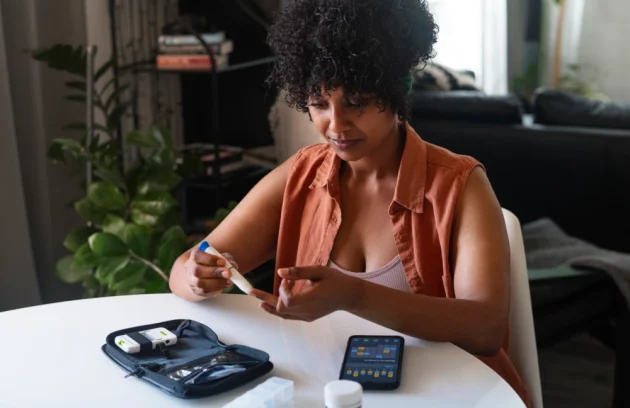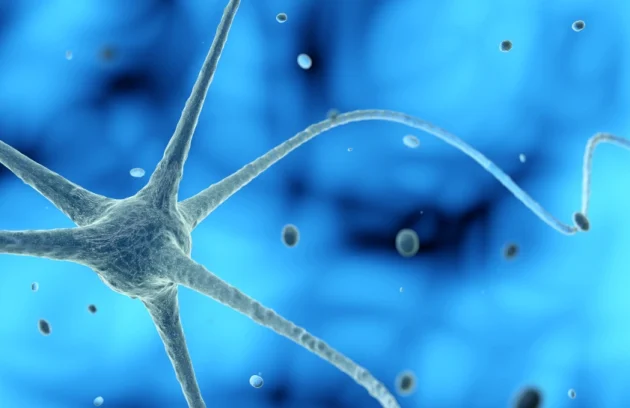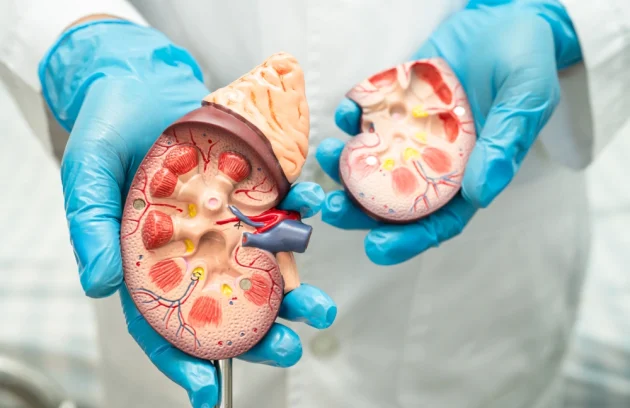Type 1 Diabetes in Kenya
If you have type 1 diabetes, your blood sugar is too high because your body can’t make a hormone called insulin. Insulin is essential for regulating your blood sugar, and without it, your blood sugar levels can become dangerously high.
In Kenya, type 1 diabetes is less common than type 2 diabetes, but it still affects many people, particularly children and young adults. Although it is often diagnosed in childhood, type 1 diabetes can develop at any age. Type 1 diabetes accounts for fewer than one in 10 cases of diabetes globally, and it cannot be prevented. The exact causes of type 1 diabetes are not fully understood, but genetics play a role. You are at a higher risk of developing type 1 diabetes if a close family member, such as your mother, father, brother, or sister, has it.

Managing Type 1 Diabetes
Insulin is the main treatment for type 1 diabetes. You need insulin injections or an insulin pump to manage your blood sugar levels because your body cannot produce insulin on its own. Without insulin, your body cannot use the glucose from food for energy, leading to serious complications. Checking and managing your blood sugar levels daily is crucial to reduce the risk of short-term and long-term health problems, also known as diabetes complications.
People with type 1 diabetes in Kenya need access to insulin and regular healthcare support to manage their condition effectively. This includes monitoring blood sugar levels, adjusting insulin doses, and making healthy lifestyle choices.
In Kenya, type 1 diabetes is less common than type 2 diabetes, but it still affects many people, particularly children and young adults. Although it is often diagnosed in childhood, type 1 diabetes can develop at any age. Type 1 diabetes accounts for fewer than one in 10 cases of diabetes globally, and it cannot be prevented. The exact causes of type 1 diabetes are not fully understood, but genetics play a role. You are at a higher risk of developing type 1 diabetes if a close family member, such as your mother, father, brother, or sister, has it.
Causes of Type 1 Diabetes
While the exact cause of type 1 diabetes is unknown, it is thought to be an autoimmune condition. This means the body’s immune system mistakenly attacks and destroys the insulin-producing cells in the pancreas. Unlike type 2 diabetes, lifestyle factors such as diet and exercise do not play a role in the development of type 1 diabetes.
Because type 1 diabetes is not preventable, it’s important to raise awareness about the condition and support those affected by it. Research is ongoing to better understand the causes and potential treatments for type 1 diabetes.
Research and Future Treatments
While there is currently no cure for type 1 diabetes, research is being conducted globally, including in Kenya, to find new treatments and work towards a cure. Advances in diabetes research are focused on improving insulin delivery methods, such as insulin pumps and artificial pancreas systems, and ultimately finding a way to prevent or reverse the condition.
Supporting diabetes research is critical to improving the quality of life for those living with type 1 diabetes and finding a cure in the future.
Before you use the tool to find out your risk, you need to take a few measurements: your waist size, your height and your weight.
By understanding type 1 diabetes in Kenya and ensuring access to proper treatment and support, those living with the condition can lead healthy lives. Raising awareness about the importance of insulin and daily blood sugar management can help reduce the risks associated with the condition.
Diabetes and Malnutrition
CLINIQUEST RESEARCH Diabetes and Malnutrition: A Key Focus at Cliniquest Research At CRK-NGO, we are committed to addressing…
Hyperosmolar Hyperglycaemic State (HHS)
COMPLICATIONS Hyperosmolar Hyperglycaemic State (HHS) in Kenya Hyperosmolar Hyperglycaemic State (HHS) is a serious complication of type 2…







